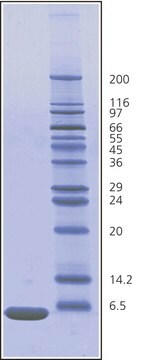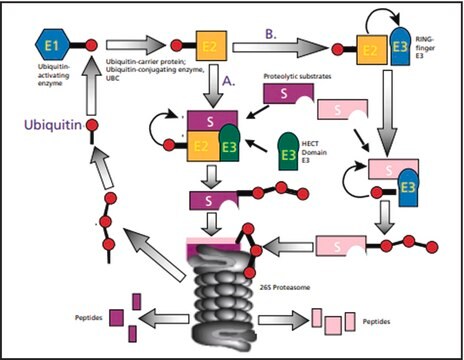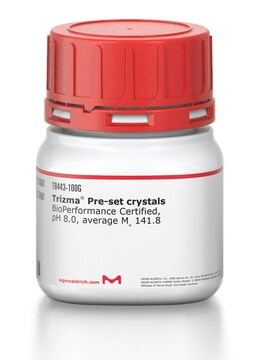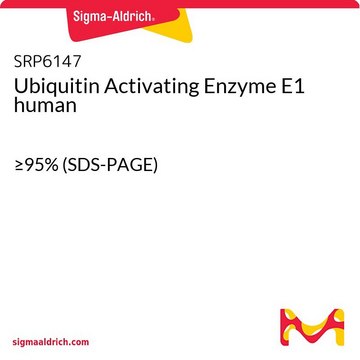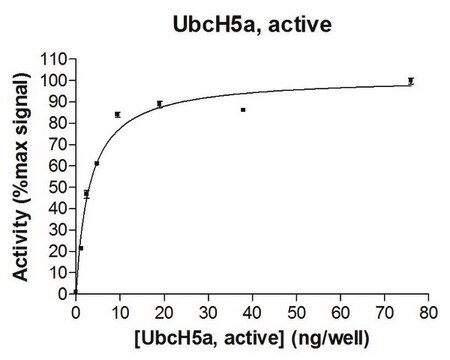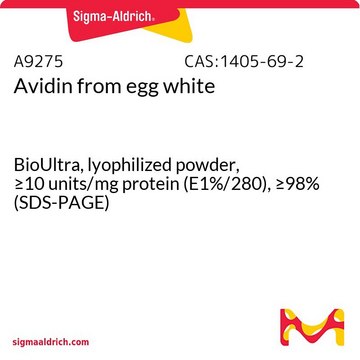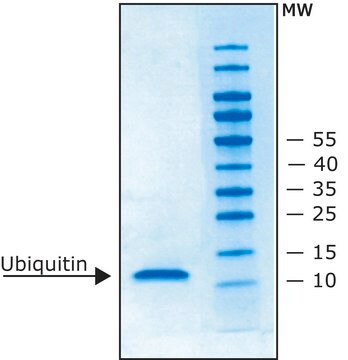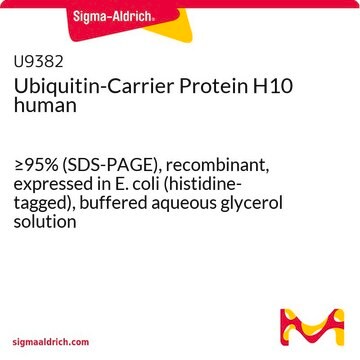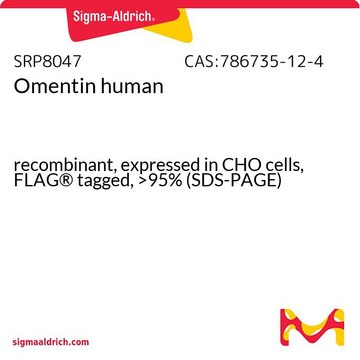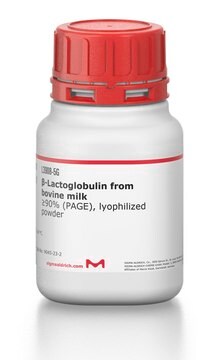Documenti fondamentali
U5507
Ubiquitin human
recombinant, expressed in E. coli (N-terminal histidine tagged)
About This Item
Prodotti consigliati
Origine biologica
human
Livello qualitativo
Ricombinante
expressed in E. coli (N-terminal histidine tagged)
Saggio
≥95% (GE)
Stato
lyophilized powder
PM
10.7 kDa
tecniche
ligand binding assay: suitable
Solubilità
Tris-HCl, pH 7.5: 1.0—1.10 mg/mL, clear to slightly hazy, colorless
Compatibilità
suitable for molecular biology
Cerchi prodotti simili? Visita Guida al confronto tra prodotti
1 of 4
Questo articolo | U5382 | U9382 | SRP8047 |
|---|---|---|---|
| biological source human | biological source human | biological source human | biological source human |
| technique(s) ligand binding assay: suitable | technique(s) mass spectrometry (MS): suitable | technique(s) ligand binding assay: suitable | technique(s) ligand binding assay: suitable |
| recombinant expressed in E. coli (N-terminal histidine tagged) | recombinant expressed in E. coli (N-terminal FLAG® tagged) | recombinant expressed in E. coli (histidine-tagged) | recombinant expressed in CHO cells |
| assay ≥95% (GE) | assay ≥95% (SDS-PAGE) | assay ≥95% (SDS-PAGE) | assay >95% (SDS-PAGE) |
| suitability suitable for molecular biology | suitability - | suitability - | suitability - |
| mol wt 10.7 kDa | mol wt 10 kDa | mol wt ~20 kDa | mol wt ~38 kDa |
Descrizione generale
Ubiquitin is a highly conserved protein composed of 76 amino acids, and it is expressed universally in all eukaryotes, ranging from yeast to humans.[1]
Applicazioni
- as a substrate in in vitro ubiquitination assays[4]
- as substrate in ADP-ribosylation and ubiquitylation assays[5]
- to supplement the 64 ng of endogenous ubiquitin in fresh blood for experiment grouping in order to study its potential clinical impact on cancer prognosis[6]
Azioni biochim/fisiol
Nota sulla preparazione
Codice della classe di stoccaggio
11 - Combustible Solids
Classe di pericolosità dell'acqua (WGK)
WGK 3
Punto d’infiammabilità (°F)
Not applicable
Punto d’infiammabilità (°C)
Not applicable
Dispositivi di protezione individuale
Eyeshields, Gloves, type N95 (US)
Scegli una delle versioni più recenti:
Possiedi già questo prodotto?
I documenti relativi ai prodotti acquistati recentemente sono disponibili nell’Archivio dei documenti.
I clienti hanno visto anche
Il team dei nostri ricercatori vanta grande esperienza in tutte le aree della ricerca quali Life Science, scienza dei materiali, sintesi chimica, cromatografia, discipline analitiche, ecc..
Contatta l'Assistenza Tecnica